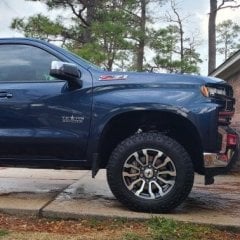How often do you change your oil? Do you do it by the book?
-
Similar Content
-
14-18 silverado power heated/cooled seats retrofit HELP
By Lael Howard,
- Power heated/cooled seats
- Heated seats
- (and 22 more)
- 2 replies
- 201 views
-
- 0 replies
- 175 views
-
- 3 replies
- 417 views
-
- 6 replies
- 422 views
-
- 0 replies
- 305 views
-
-
Recently Browsing 0 members
- No registered users viewing this page.
-
Forum Statistics
246k
Total Topics2.6m
Total Posts -
Member Statistics
-
Who's Online 6 Members, 0 Anonymous, 821 Guests (See full list)


















Recommended Posts
Join the conversation
You can post now and register later. If you have an account, sign in now to post with your account.